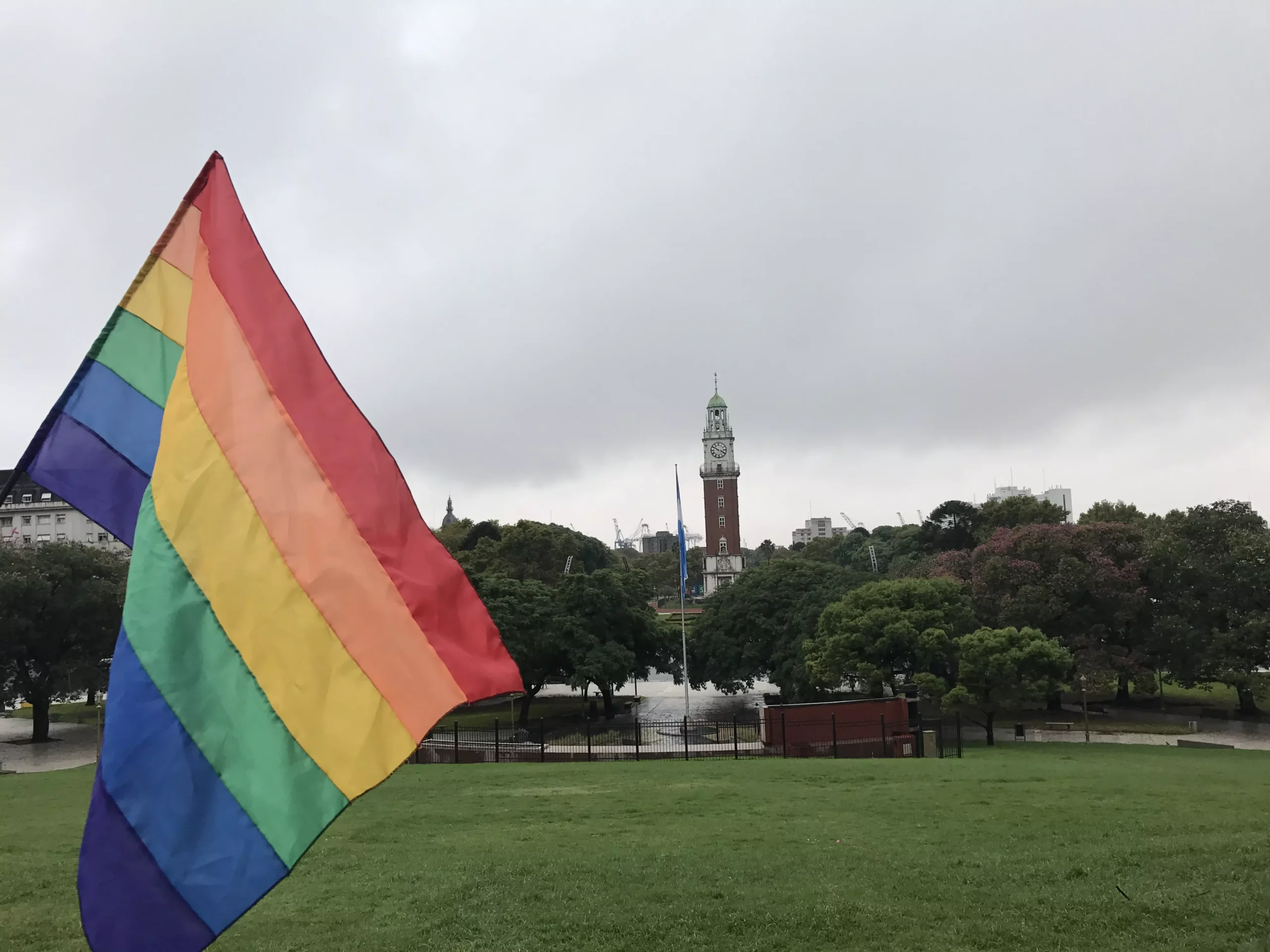Queer Tango: Being LGBTQ+ in Buenos Aires, Argentina


When I was researching study away programs and locations, one of the biggest factors was safety. There are many places in the world where it is not safe for LGBTQ+ individuals to live openly, and I was not prepared to go back into the closet for a semester. From the research I had done before, Buenos Aires seemed like the opposite was true, that LGBTQ+ people do not have to hide their identities and can live freely and openly. After being here for almost two months, I’ve found myself immersed in queer culture even more than I was in the States, and I rarely feel unsafe in the city. I am only one small part of the queer umbrella, however, and my experiences do not reflect everyone’s. For that reason, I decided to interview fellow LGBTQ+-identifying IFSA-Butler students to see how their identities interact with life in Buenos Aires, Argentina.
Safety
Paige Harrington of Muhlenberg College says she feels safer in Buenos Aires as a queer woman than she does in the U.S. Nicholas Wallach of Williams College agrees, and says that there have been very few instances where he has felt unsafe as a queer man. I definitely agree with these sentiments, although much of that depends on context. Where in the U.S. do you live? Who do you surround yourself with, both in Buenos Aires and back home? For some of us, this city may seem like a refuge while for others it may feel the same as home. One aspect in particular that caught the eye of Hamilton College student, Olivia Melodia was the difference in PDA culture (public displays of affection). Here in Buenos Aires, she says, gay couples are more ‘visible,’ due to the general acceptance of public acts of affection such as hand-holding, hugging, and kissing.
When talking about feeling unsafe, we have to reconcile our LGBTQ+ identities with our physical ones. For example, Nicholas and I stated that we feel safe in most environments in the city, but as men we are not subjects of catcalling or other forms of public harassment. Olivia, as a woman, says that she feels “significantly less safe here than in [New York City]… catcalling here is on a totally different level.” It appears to be that safety as an LGBTQ+ person is linked to other identities, such as perceived gender and appearance. Nevertheless, I would rank Buenos Aires as a very safe city for LGBTQ+ individuals; it has definitely exceeded my expectations.
Community
“It’s really easy to find queer safe spaces… it’s easy to find community,” Paige told me confidently. One shining example of this is “queer tango.” There are several milongas, or tango clubs, that regularly host evenings of dancing especially for the community. Nicholas attends one every Tuesday night, and says that “queer tango is dope.” It’s a fantastic way to get to know local LGBTQ+ individuals, and learn to dance like them too. Speaking in general terms, Buenos Aires is an easy place to find community. To those of us who use them, dating apps have been a very useful way to meet locals and create safe spaces.
Language

An interesting topic that we discussed was the linguistics of being LGBTQ+ in a Spanish-speaking country. In our liberal-arts college circles in the States, personal gender pronouns are not a new concept. In Spanish, however, there’s a different story. None of us has felt exposed to viable alternative pronoun options (I’m talking besides él/ella). Classmates interviewed for this article and I are comfortable fitting within the gender binary while abroad, thus we cannot attest to the experience of a person who does not. From our experience with IFSA-Butler, however, we feel that more needs to be done on their part. We’d like more exposure to pronoun options and uses of gender in Spanish (such as les amigues/ lxs amigxs etc.), and more awareness and support for trans and gender-non-conforming students.
This isn’t to say that IFSA-Butler has failed all LGBTQ+ people, however. For students who are cis and queer, we agree that the program has done a good job. Many of the staff in the Buenos Aires office identify openly as LGBTQ+, and when prompted, relevant issues and topics were discussed in orientation. Additionally, Olivia and I were surprised by how open our fellow students have been, “everyone on our program was instantaneously so open about [sexuality] and IFSA-Butler is very clearly an open-minded environment.”
Buenos Aires was clearly the right choice for me for studying abroad for many reasons, but especially for its openness regarding queerness and LGBTQ+ identity. Olivia told me that while being here she “is the most comfortable I’ve ever felt with my sexuality.” I echo this sentiment completely. In these two short months, I have been able to live my gay life to the fullest.
Ellis D. | Hispanic Studies and Linguistics student | Macalester College | Argentine Universities Program, Buenos Aires Directed Research Track | 2017 | IFSA International Correspondent